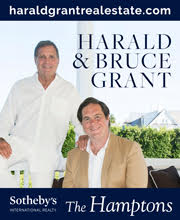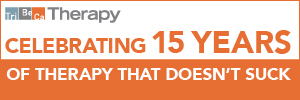Congestion pricing plan passes the MTA board
The plan for congestion pricing downtown — south of 60th Street — was passed by the board of the MTA yesterday afternoon, paving the way for tolling to begin this coming June. The vote was 11 to 1.
By the MTA’s estimate, the toll will result in 100,000 fewer vehicles in the zone each day, and raise funds for the MTA itself. The state reqires that the program make $1 billion a year for the transit system. It’s the first congestion pricing plan in the country.
The tolling schedule created in November by the Traffic Mobility Review Board will stick: cars will be tolled $15 a day, no more than once a day, between 5a and 9p on weekdays, and between 9a and 9p on weekends. Toll rates for cars will be $3.75 in the off-hours. AND cars will only be tolled for ENTERING the Central Business District, which is south of 60th Street, meaning Downtown residents will only be charged when they come home from a trip out of the city, not when they leave as well. (For answers to other scenarios, see this post and this post.)
For trucks, the toll is a minimum of $24; taxis will have a surcharge of $1.25 and Uber and Lyft $2.50 for rides that begin, end or take place within the zone.
As for when this all will start, the MTA staff said last week that this vote triggers a 60-day public information campaign and a concurrent 30-day testing period. Tolling will start after that, so putting it for now at June 1.
The tolling infrastructure itself is almost all complete: there is one location left to install.

















Pure speculation, but if we think ghost cars and fake temp tags are a problem now, just wait!
This will do nothing but cost residents on multiple fronts.
This is shameful and our local government leadership has failed us again. Residents should be exempt not taxed to come and go from home.
“The state requires that the program make $1 billion a year for the transit system.” So if it is successful in its stated goal and reduces the number of cars and trucks, the fee per vehicle will have to increase. Hence, as any child can see, it’s a tax, not a traffic and pollution reduction scheme. If it was the latter, the rubric would be a reduction in vehicles, not a fixed dollar amount.
Is the entering-not-leaving rule new? I hadn’t seen that before – this means a downtown resident can leave the city for a weekend trip without paying a toll, and then will pay when they return on e.g. sunday?
I haven’t seen anything about Canal Street – is the basic answer that cars coming down the West Side Highway with the intent of entering the Holland Tunnel will pay the charge? I know the charge is credited against the toll, but there isn’t actually a toll in that direction.
Interestingly, taken the above two together, a downtown resident leaving the city through the holland tunnel for a weekend trip will only see a very modest incremental impact, because the charge will be netted across the inbound toll, but that same person taking a trip north of the city along the Henry Hudson would have a larger delta. Weird small things… Will be interesting to see in practice!
Correct on your first point. That was a nod to residents of the CBD. Not sure about the Holland Tunnel question. Stay tuned.
As someone who regularly drives round-trip to see my 96 year old mother in Paramus, I’m flummoxed that if I drive most of the way south in NJ to join the mess at the Lincoln or Holland Tunnels on the way back, I’ll get a rebate against the fee, but not if I use the GWB and the Henry Hudson, a route (based on Google map drive times) is usually less busy at the time I return. I hope one of the traffic gurus does a study on the change in traffic patterns for the eastbound Hudson River crossings after the fee goes into effect.
I don’t have an issue with congestion pricing. I look forward to fewer cars on our streets, which is a result that has no downsides that I can see. We do own a car that we keep in the CBD, and when we do need to drive it, I’m happy to pay for that privilege.
The vast majority of the congestion in our neighborhood is a direct result of the Holland Tunnel. Let’s hope congestion pricing actually reduces volume at the tunnel. Tunnel drivers treat our neighborhood like a highway, speeding, blocking intersections, honking, etc. The NYPD, DOT and Port Authority has not done enough to protect the streets in this area. They completely ignore the problem on weekends and just let the tunnel backup without any traffic police on Canal / Hudson at all. It’s honestly a joke.
To be clear…. I pay an absurd amount of money in taxes to live in the CBD, I do not send my children to public schools (therefore not using public school resources and funds) and now I will be charged to drive my child to school to the upper east side (on the way back home). Note that I also drive other neighbors (total of 6 children); therefore alleviating traffic. This “toll” definitely sounds more like a tax and an insult to downtown residents.
Hmm seems like this congestion pricing is a real burden for you and those 7 schoolbound children. Maybe you should stop driving and all take the train to school?….Oh wait, that’s the point!
Respectfully, do you not see that you are creating additional congestion by driving? The UES is not a difficult commute by subway. With six kids at $15, that’s $2.50 a child, less than what you’d pay for a swipe.
We all pay a lot of money to live here. I’d personally like to enjoy it more with fewer cars and more breathable air. The roads downtown are an absolute mess right now. My tax money also goes to the abundance of car infrastructure in the CBD. See how this works? We all have shared responsibility and necessarily need to contribute in a society.
I just don’t think congestion parking will noticeably change traffic. People who want to drive will pay. I DO think it’s all about revenue for the city. What do I wish? That downtown residents could get a scannable permit for their car and perhaps a monthly “ration.”
Brilliant to be building a new high rise jail in Manhattan as part of the close-replace Rikers plan.
Definitely need more high-rise developments like the jail, various super-talls, a casino etc. so that “congestion” can be “reduced”.
Questions I can’t find the answer to anywhere:
-If I live at Chambers and W Broadway and cross the WSH to go into Battery Park will I be charged the toll?
-Similar question, if I get on the WSH at Chambers and turn right on Hubert will I be charged the toll?
No, you will not. BPC residents and Tribeca residents are within the zone, and the highways are exempt. So travel within the zone — even including the highway — does not get tolled.
Thanks!!!
WSH and FDR are exempt, but not within the zone, so to answer their question, 1) you won’t be charged for crossing the WSH to Battery Park, but when you cross back in you will be charged.
2) turning right on Hubert St. will create a charge because you are entering the zone from the WSH.
Basically if you are a resident with your car already within the zone, you will need to avoid the drive/highways if you want to avoid the charge.
Wish it weren’t the case, so convince me otherwise.
You are wrong. The highways are exempt, period. I have run that exact scenario with the MTA in other posts. Travel within the Central Business District will not be tolled. The whole point is to keep cars from coming into the district, not limit movement within the district.
Is Battery Park City a part of the CBD under the most up-to-date MTA guidance? Anyone have an idea?
Didn’t see the prior post…
Everything south of 60th Street.
Do you want to provide detail to your response instead of just saying you are wrong? I don’t think you are recognizing the scenario. Making a right onto Hubert St from WSH is entering the CBD. Read carefully!
I did provide detail. You are welcome to find a better source! I am not an expert on congestion pricing. I do know, because I asked the MTA press office directly, that if you come from within the CBD and get onto the highway and do NOT cross 60th Street, then you will not be tolled. You are wrong in that the highways are exempt within the CBD and without.
Hope that’s the case then. I would have expected to see cameras put up on every inbound street corner bordering the highways and haven’t seen that so perhaps correct. I just can’t fathom how the technology will peice together those cars that never turn into the CBD vs those that do from the highways.